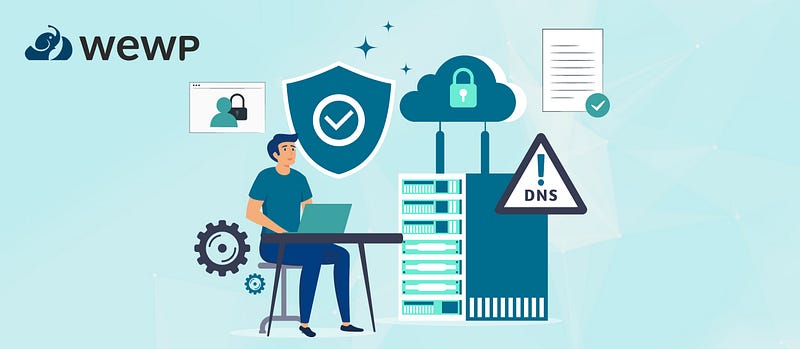Mitigating DNS Hijacking: Strategies for Detection and Prevention
This blog post explores DNS hijacking, a cyberattack that redirects website traffic to malicious sites. It can steal sensitive information, install malware, and cause financial losses. Businesses are particularly vulnerable if their web hosting provider doesn’t prioritize security.
Understanding DNS Hijacking
DNS, like a phone book, translates user-friendly domain names (e.g., example.com) into numerical IP addresses that computers understand. In DNS hijacking, attackers corrupt this process, rerouting traffic to fraudulent websites.
Four Types of DNS Hijacking Attacks
Local DNS Hijacking: Malware on a user’s computer alters DNS settings, unknowingly redirecting them to malicious sites.
DNS Router Hijacking: Hackers exploit vulnerabilities in router firmware to change DNS settings, redirecting everyone using that network.
Man-in-the-Middle DNS Hijacking: Attackers insert their IP address into DNS settings, directing users to a malware-laden website disguised as the intended one.
Rogue DNS Server Hijacking: Hackers gain access to a DNS server and modify configurations, redirecting traffic from legitimate websites to malicious ones.
Five Ways to Prevent DNS Hijacking
Secure Your DNS Resolvers: Firewalls protect legitimate DNS resolvers (which send queries to servers) from external access and prevent fake resolvers from redirecting traffic.
Choose a Reliable Hosting Provider: A reputable provider uses robust security measures like firewalls, DDoS mitigation, and DNSSEC (for verifying record authenticity) to safeguard your website.
Train Staff on Security Best Practices: Educate staff on cybersecurity practices like avoiding suspicious links, using strong passwords, and verifying email senders before clicking links.
Limit Name Server Access: Implement multi-factor authentication and strong firewalls to secure your name servers. Separate resolvers and authoritative name servers for added protection.
Patch Known Vulnerabilities Promptly: Regularly update software and firmware to eliminate vulnerabilities that hackers might exploit.
Also Read : The Risks of Lacking Security Measures in WordPress Hosting
Why Choosing a Reliable Hosting Provider Matters
Web hosting providers play a crucial role in preventing DNS hijacking. They offer:
Strong DNS Infrastructure: Reliable providers invest in secure DNS infrastructure with advanced features like DNSSEC.
Up-to-date Security: They regularly update systems with the latest security patches to minimize vulnerabilities.
DDoS Attack Mitigation: Effective DDoS mitigation measures prevent attacks that disrupt website availability and can be used in conjunction with DNS hijacking attempts.
Detection and Response: Experienced hosting companies use monitoring tools to detect suspicious activity and respond quickly to prevent further damage.
Security Authentication Practices: Strong password policies and multi-factor authentication safeguard DNS management interfaces from unauthorized access.
Conclusion
DNS hijacking is a serious threat, but by implementing security strategies and choosing a reliable hosting provider, you can significantly reduce the risk. WeWP, the blog post author, emphasizes their expertise in secure WordPress hosting solutions.
